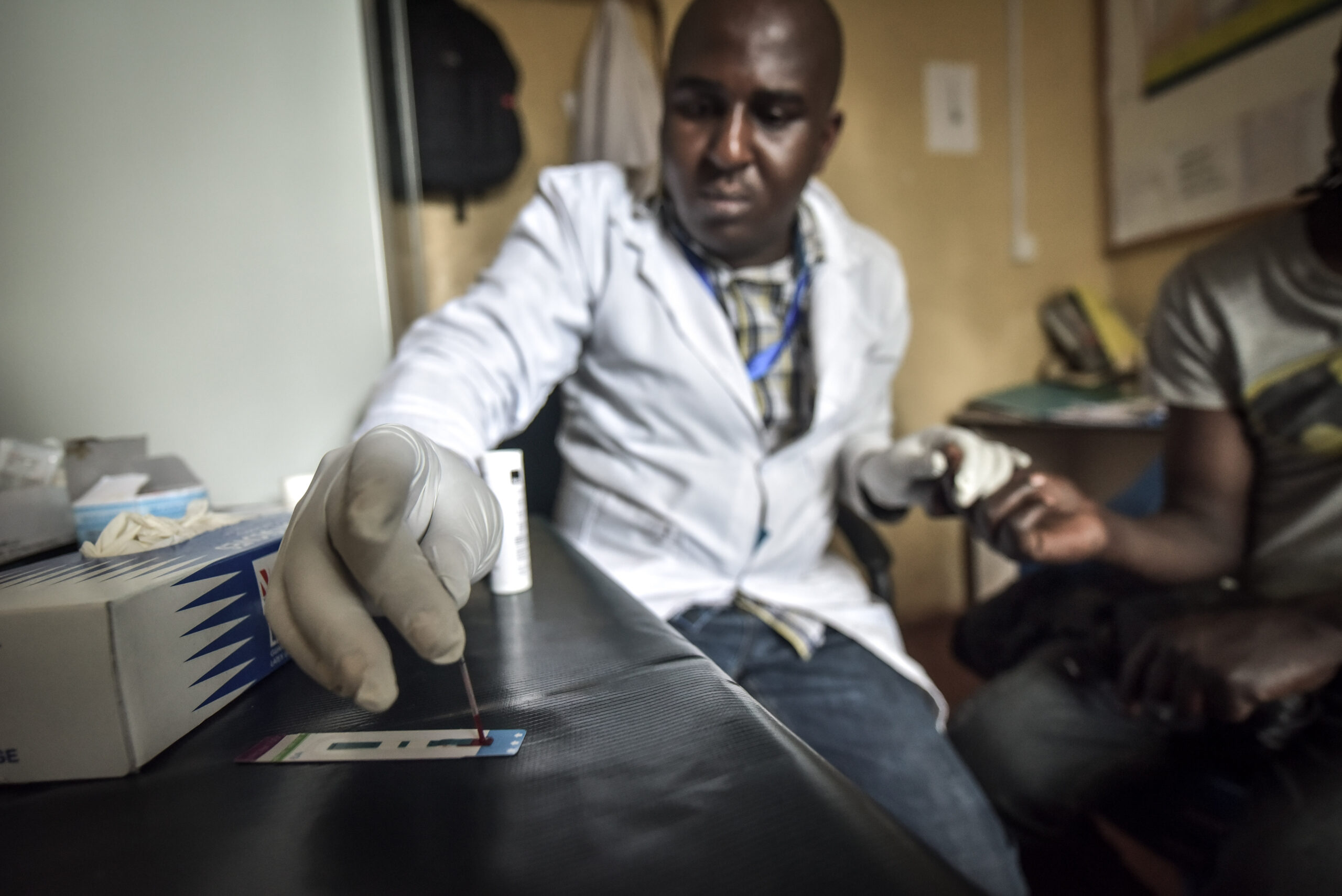The problem
Access to more effective HIV diagnosis and treatment monitoring technologies was severely lacking in resource-constrained settings, creating a significant barrier to treatment and proper care.
Our response
The project sought to expand access to affordable, quality-assured HIV monitoring technologies by addressing regulatory and policy barriers and developing tools for costing and quality assurance to support in-country implementation. In addition, the project supported multi-country efforts to collect performance data and national procedures for authorizing the use of these technologies.
The project established a set of profiles for HIV point-of-care products – diagnostic tools designed for rapid, on-site testing and monitoring of HIV infection. Policies about the adoption of point-of-care technologies were documented in Tanzania and Zambia. The project also developed quality assurance and costing tools, which are important for planning and implementing point-of-care technologies.
The establishment of a network of evaluation sites, national quality assurance systems to ensure the quality of testing at point-of-care sites, connectivity solutions and costing tools can serve as templates that will allow the impact of this work to go beyond HIV technologies.





